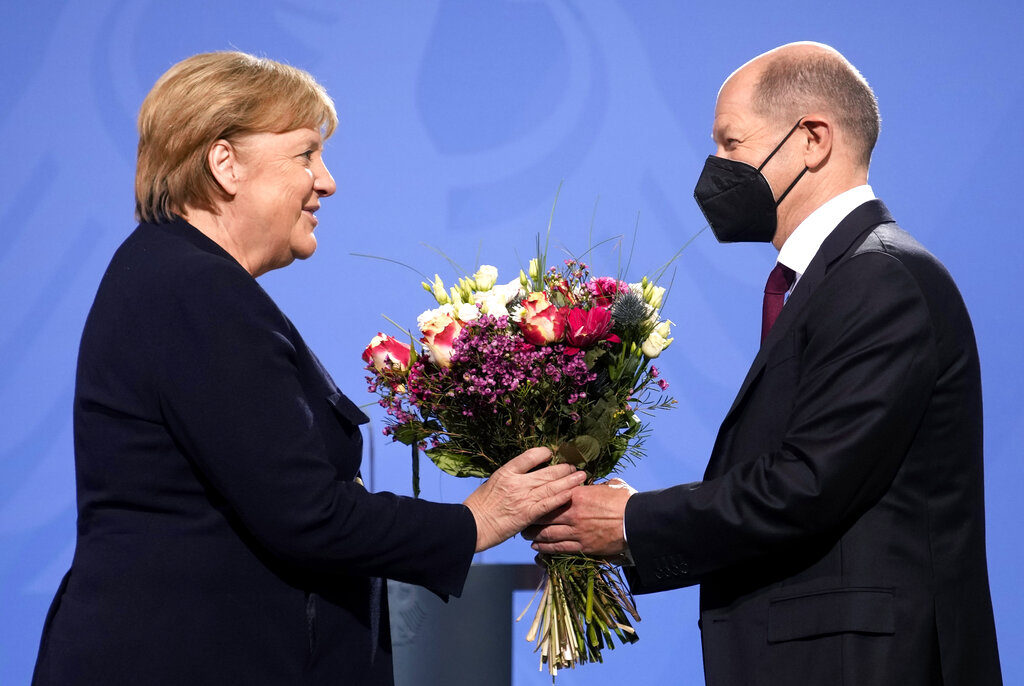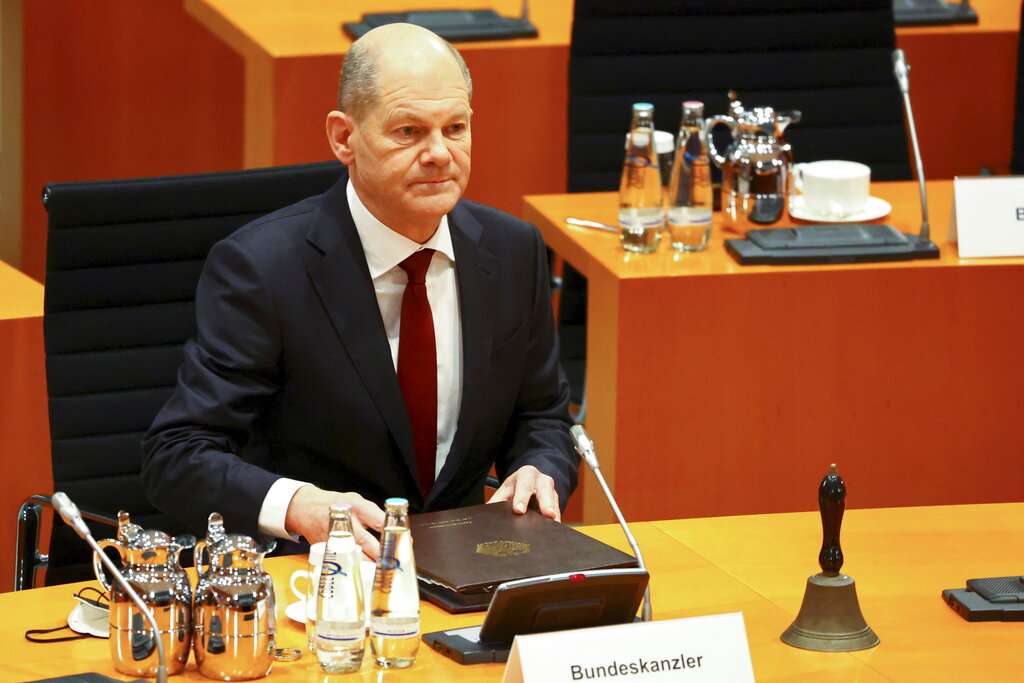As the 63-year-old left-wing Social Democrat (SPD) politician Olaf Scholz took his oath to become chancellor of Germany yesterday, he explicitly left out the part of the oath, “So help me God,” which remains an optional part of the swearing ceremony in Germany.
He is the first chancellor to leave the reference to God out of his oath.
Although brought up in the Protestant faith, he left the church in his youth.
Scholz was elected to German Parliament as the ninth chancellor of post-war Germany with 395 votes for, 303 against, six abstentions and three invalid votes. That is 26 votes more than the minimum required but also 21 votes less than his three-party coalition has, most likely due to the fact that only 707 of the 736 representatives were present.
His predecessor, Angela Merkel, who was elected in 2005, leaves politics after four terms, equaling 5,860 days in office. She does not have a parliamentary mandate, so she followed the vote from the visitors’ gallery of the Reichstag, the headquarters of the Bundestag.

After his election, Scholz took over his new credentials from Federal President Frank-Walter Steinmeier and took his oath of office in parliament.
The new German chancellor is married to Britta Ernst, minister for education in the Brandenburg provincial government. Scholz has a law degree and worked as a lawyer in Hamburg until the late 1990s. He has been working as a professional politician since 1998, when he was first elected to the federal parliament.
His career was intertwined with that of the chancellor during the 1998-2005 SPD-Greens coalition led by Gerhard Schröder. With the support of Schröder, he joined the SPD presidency in 2001, where he held various positions until 2019.
His relationship with the SPD functionaries was never easy, often downright turbulent, as was his relationship between Gerhard Schröder and the SPD. Since Schröder’s departure in 2005, he has always been characterized as a pragmatic social-liberal, while Schröder represented a different direction.
He will lead Germany’s first ever three-party, left-liberal coalition and his 16-ministers cabinet has an equal number of men and women, with several other firsts. This is, for instance, the first government in which the foreign and interior ministers are women (Green Annalena Baerbock and Social Democrat Nancy Faeser, respectively).
It is also the first time a person with Turkish roots, Cem Özdemir (Greens), holds a ministerial position, with Özdemir serving now serving as minister of agriculture.
With the fight against the coronavirus pandemic topping the agenda in Germany, selecting epidemiologist and Harvard graduate Karl Lautenbach as health minister who has been praised by the media for his tough stance on vaccination and lockdowns, but he has also emerged as a figure of scorn for the anti-vaccination movement and lockdown skeptics.





